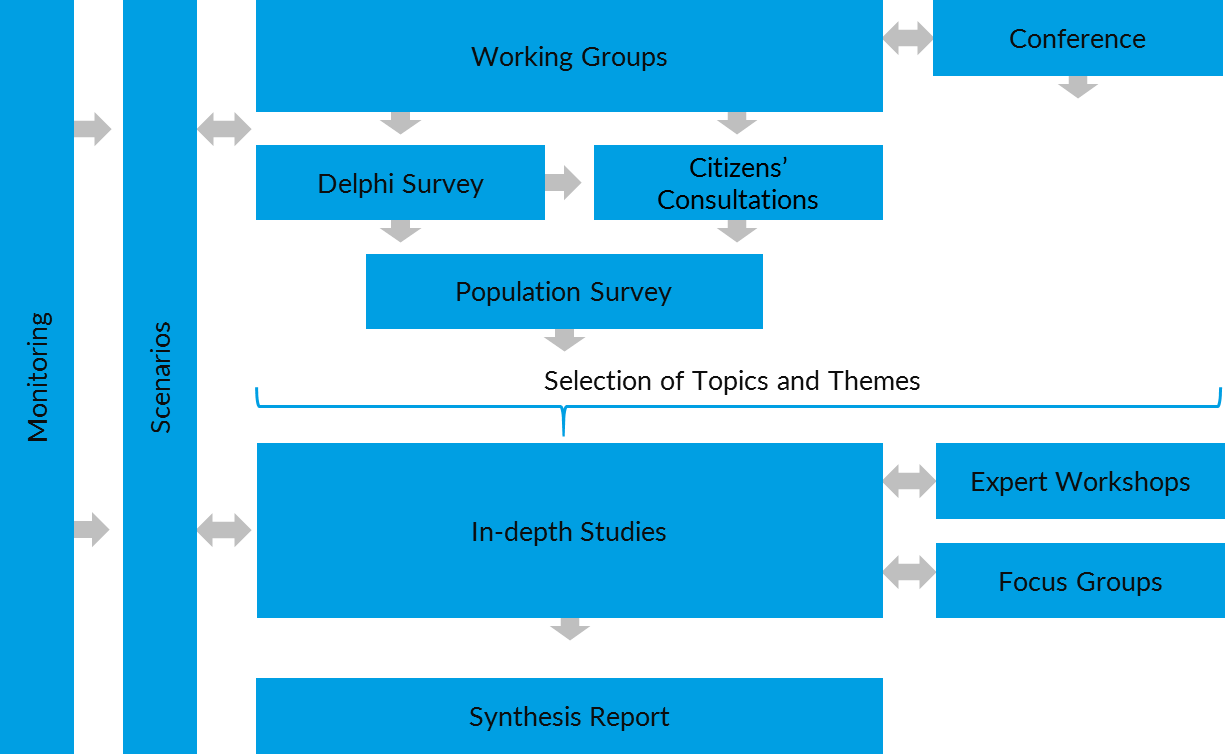Abida - The Project
This development raises questions that are highly relevant for society, for example, concerning commercial or state surveillance, the protection of privacy and informational self-determination, problems of a lack of transparency, abuse or errors in data management or in automated decision-making. A public debate about the balance between using the potential of Big Data innovations on the one hand and individual and societal values on the other hand has only recently begun.
The project contributes to the debate through a series of joint research processes, including social dialogue instruments. Therewith, it is intended to collect, create, deepen and disseminate knowledge about Big Data and its use.
Assessment of current developments
Within the project, the complex and often opaque developments in Big Data applications, data flows and business models will be continuously monitored, recorded and assessed. To determine and assess societal changes associated with Big Data, interdisciplinary in-depth studies will be set up, taking into account the findings and results of expert workshops and focus groups.
Evaluation of citizens’ perceptions
In order to understand citizens’ estimations and expectations, three citizens’ consultations will be held and a representative population survey will be carried out.
Knowledge exchange across disciplines
The so far fragmented scientific knowledge will be brought together, further developed and shared across the different fields of social science research. It will then be used to assess specific Big Data developments. Specially established working groups in the fields of ethics, economics, sociology, law, and political science support this aim. Additionally, a nationwide symposium will be organized which offers opportunities for exchange to stakeholders working in research and development.
Assessment of future developments and options for action
Finally, the results of the whole set of research activities and the assessment and discussion of future developments in scenarios and in an expert Delphi workshop will be used to develop options for political action, research and development.
Abida Project Structure
Structure and execution of the research- and dialogue-oriented instruments and work packages.
